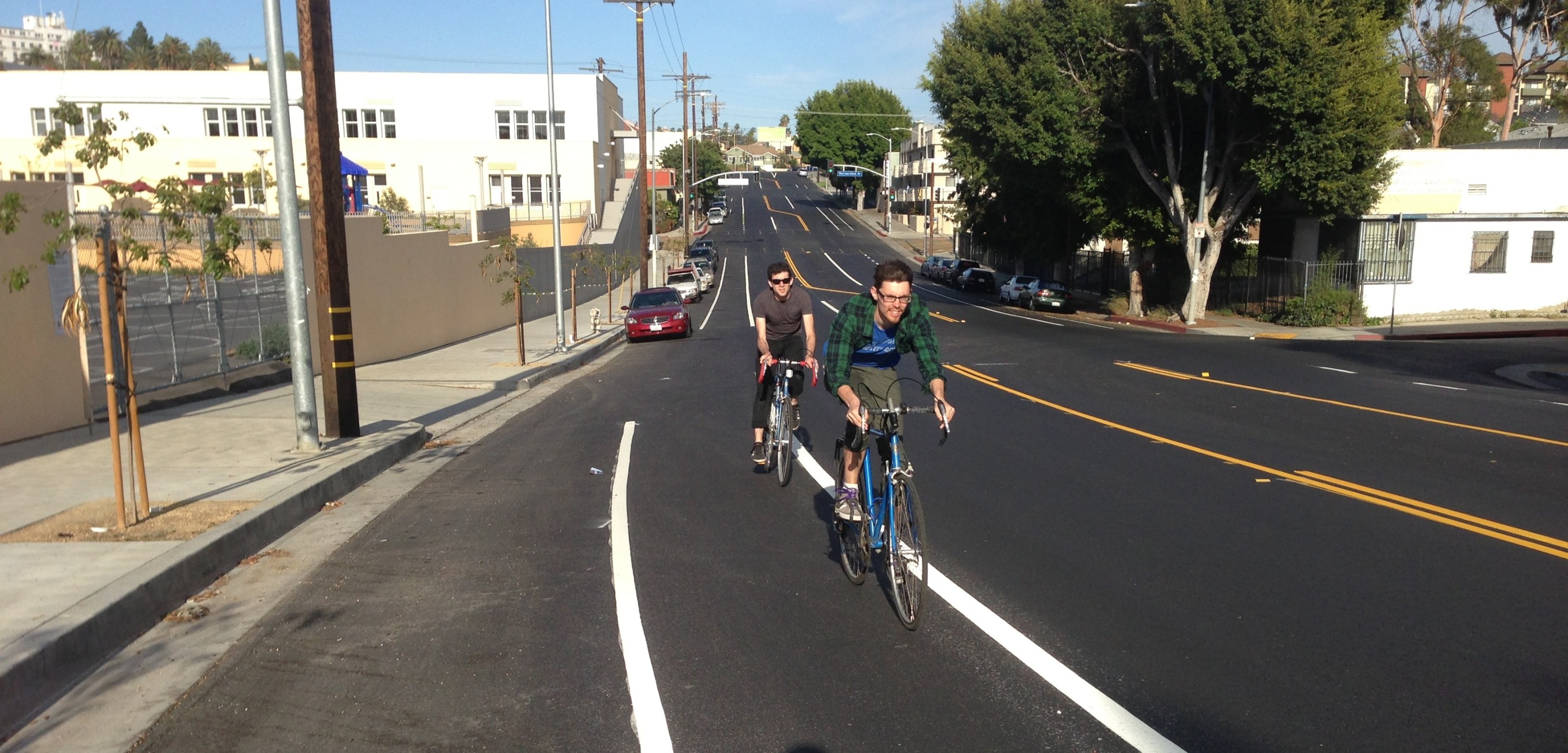Last month, mobility and safety advocates responded to a proposed anti-road-diet motion. The item was before the L.A. Neighborhood Council Coalition (LANCC), an unofficial but relatively influential body that consists of representatives from L.A.'s elected neighborhood councils. The motion would have demanded that L.A. "remove all traffic calming measures, including... road diets" on various types of streets.
The December LANCC meeting featured a presentation from just one side of the issue: Chris LeGras of Keep L.A. Moving (KLAM). In writing and in person at the meeting, numerous livability advocates urged LANCC not to approve the motion. LANCC then postponed the motion until its January meeting, which will take place tomorrow at 10 a.m. at the L.A. Department of Water and Power headquarters at 111 N. Hope Street in downtown L.A.
Tomorrow's meeting agenda was just posted to the LANCC website this morning. The agenda shows that LANCC has backed off of the KLAM anti-safety stance, only calling for communities to be consulted on road diet projects. The revised motion now reads:
[LANCC] takes the position that there shall be no blanket prohibition of road diets; some are beneficial and some are not. [LANCC] recognizes the beneficial effects of a road diet along certain corridors, but road diets create confusing, negative effects along other corridors. Communities that will be impacted with a potential road diet, including neighborhood councils, shall be consulted extensively both before and after road diets are proposed.
The language is not perfect. It sounds a bit too similar to mealy-mouthed journalism picking spokespeople from each side of an issue, like: "some people think climate change is happening, some people think it is not." Nonetheless, the big changes represent a victory for safety advocates, as the LANCC is no longer parroting KLAM's pernicious road diet rhetoric. LANCC approval of largely-neutral language would likely mean that few neighborhoods councils would take up similar copycat motions, as the Rampart Village Neighborhood Council did in mid-December.
The L.A. County Bicycle Coalition and others are still urging safe streets advocates to show up to tomorrow's meeting, which could feature modifications - either positive or negative - to the road diet motion. The meeting agenda also includes the Mobility Bill of Rights and a mayoral staff presentation on the next round of Great Streets Initiative challenge grant funding.






